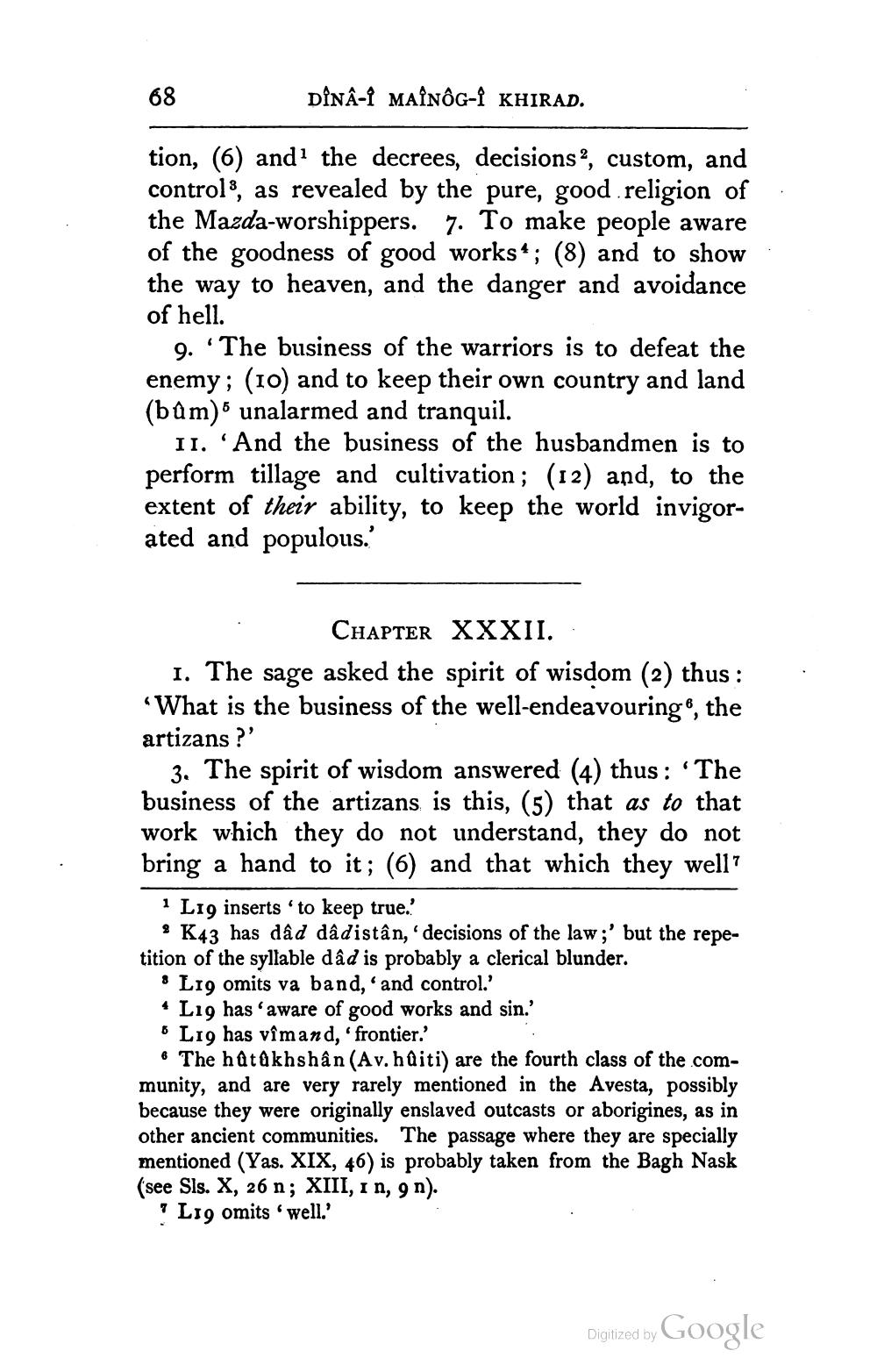________________
DÎNÂ-MAÎNÔG-Î KHIRAD.
tion, (6) and the decrees, decisions?, custom, and controls, as revealed by the pure, good religion of the Mazda-worshippers. 7. To make people aware of the goodness of good works4; (8) and to show the way to heaven, and the danger and avoidance of hell.
9. "The business of the warriors is to defeat the enemy; (10) and to keep their own country and land (bûm)unalarmed and tranquil.
11. 'And the business of the husbandmen is to perform tillage and cultivation ; (12) and, to the extent of their ability, to keep the world invigorated and populous.'
CHAPTER XXXII. 1. The sage asked the spirit of wisdom (2) thus : What is the business of the well-endeavouring ®, the artizans ?
3. The spirit of wisdom answered (4) thus: The business of the artizans is this, (5) that as to that work which they do not understand, they do not bring a hand to it; (6) and that which they well?
1 L19 inserts 'to keep true.?
9 K43 has dad dâdistân, decisions of the law;' but the repetition of the syllable dad is probably a clerical blunder.
: L19 omits va band, and control.' * L19 has aware of good works and sin.' 6 L19 has vîmand, frontier.'
6 The hût@khshân (Av. hûiti) are the fourth class of the .community, and are very rarely mentioned in the Avesta, possibly because they were originally enslaved outcasts or aborigines, as in other ancient communities. The passage where they are specially mentioned (Yas. XIX, 46) is probably taken from the Bagh Nask (see Sls. X, 26 n; XIII, 1 n, 9 n).
L19 omits well.'
Digitized by Google




